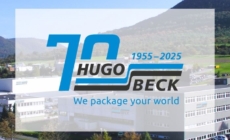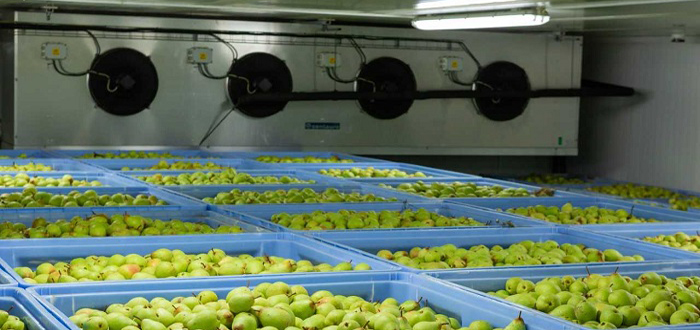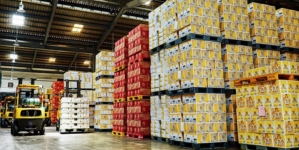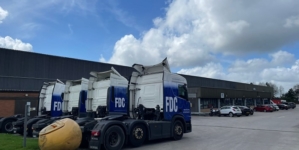-
BLACKOUT TECHNOLOGIES TARGETS TELEMATICS-INTEGRATED MOBILE DEVICE BLOCKING TO COMBAT SMARTPHONE DISTRACTION - 2 days ago
-
OpenADR Alliance announces first OpenADR 3.0 certified products with EVoke Systems, E.ON Energy and Universal Devices - March 25, 2025
-
Growing fulfilment and contract packer appoints new Managing Director - March 25, 2025
-
When is it time to invest in a WMS? Understanding the key trigger points - March 25, 2025
-
eCapital helps Vantage Recruitment on its journey to financial success - March 24, 2025
-
Hugo Beck Celebrates 70 Years of Packaging Innovation with Open House Events - March 20, 2025
-
PROLOG FULFILMENT SUPPORTS LUNA DAILY’S COMMITMENT TO BETTER BODY CARE FOR ALL WOMEN - March 19, 2025
-
Motion Ventures launches largest-ever maritime tech fund at $100M to meet the industry’s new pace of adoption - March 18, 2025
-
ITD GLOBAL APPOINTS GROUP CHIEF REVENUE OFFICER - March 17, 2025
-
SURECAM TEAMS UP WITH ENTERPRISE FLEX-E-RENT FOR VEHICLE REPAIR & MAINTENANCE CONFERENCE - March 14, 2025
CapTemp Temperature Recording System Ensures Proper Conditions in Fruit Cold Storage Units for Greater Quality Control
CapTemp developed an automated temperature recording system for The CPF Group, an organization comprised of pear and apple producers throughout Portugal, to continuously monitor and report ambient temperature and relative humidity of fruit storage units as well as fruit pulp temperatures while in cold storage. The CPF Group maintains storage units in Bombarral, Portugal for more than 15,000 tons of fruit. Lusopêra, a company originated from the CPF Group, commercializes the fruit production in foreign markets including Latin America.
Maintaining proper temperatures in cold storage units is imperative to prevent fruit deterioration and contamination from fruit flies. (Cold keeps the common fruit fly from damaging fruit.) Too low temperatures can cause chill damage to fruit, resulting in spoilage. High relative humidity also is necessary to maintain moisture. The CapTemp temperature recording system ensures the cold storage units maintain ideal conditions for different fruit lots. In addition, monitoring of fruit pulp temperatures enables CPF to extend the life of the fruit while performing heat treatment to fruit lots in response to phytosanitary requirements for export to certain markets such as Colombia and Mexico.
Previously, the CPF Group monitored temperatures manually using portable thermometers. To ensure fruit is maintained in temperatures within increments of 0◦ to 4◦ degrees, the organization needed an automated and more reliable system that could provide real-time temperature feedback.
CapTemp configured a temperature recording system for remote monitoring and reporting of storage room and pulp fruit temperatures that includes its own digital temperature sensor (TH-3-Temp OW) and perforation sensor (TH3-Temp PT 100). The sensors are located in four points of the cool chambers and within the pallets containing fruit boxes. While the digital temperature sensors extract data on room temperature, the perforation sensor provides an output on temperatures within the interior of the fruit.
CapTemp sensors are wired to a Nidus-iT web data-collector that sends output to a PLC located in a remote-control room where operators can monitor and control temperatures. The system can optionally support additional sensors and meters such as water and energy meters to monitor additional parameters related to operations. Data collected from different cool chambers and fruit is centralized at the control room so operators can view parameters for the entire operation.
Temperature alarms notify operators by email, SMS, web, phone ring and SNMP when parameters exceed high and low setpoints for different cool chambers and fruit.
CapTemp initially installed its temperature recording systems in 37 cold storage rooms throughout Portugal. In 2017, CapTemp completed installations in 10 additional storage rooms, introducing perforation sensors that recorded the temperature of fruit pulp. Based on their success, the CPF Group added pulp temperature sensors in five more cold storage rooms.
CapTemp’s solution is fully complaint with the European standard EN12830, which was adopted in November 2018. EN12830 applies to temperature recorders for the transport, storage and distribution of temperature sensitive goods, and tests performance and suitability. CapTemp’s solution is the first company to receive certification under this new standard which requires certification of measuring devices, firmware and software platforms.
Using the CapTemp temperature recordings systems, the CPF Group increases production, meets the most demanding quality certification requirements and establishes a higher standard of process modernization. For more information, please refer to the CapTemp website at captemp.com or contact Carlos Domingues at [email protected].

































